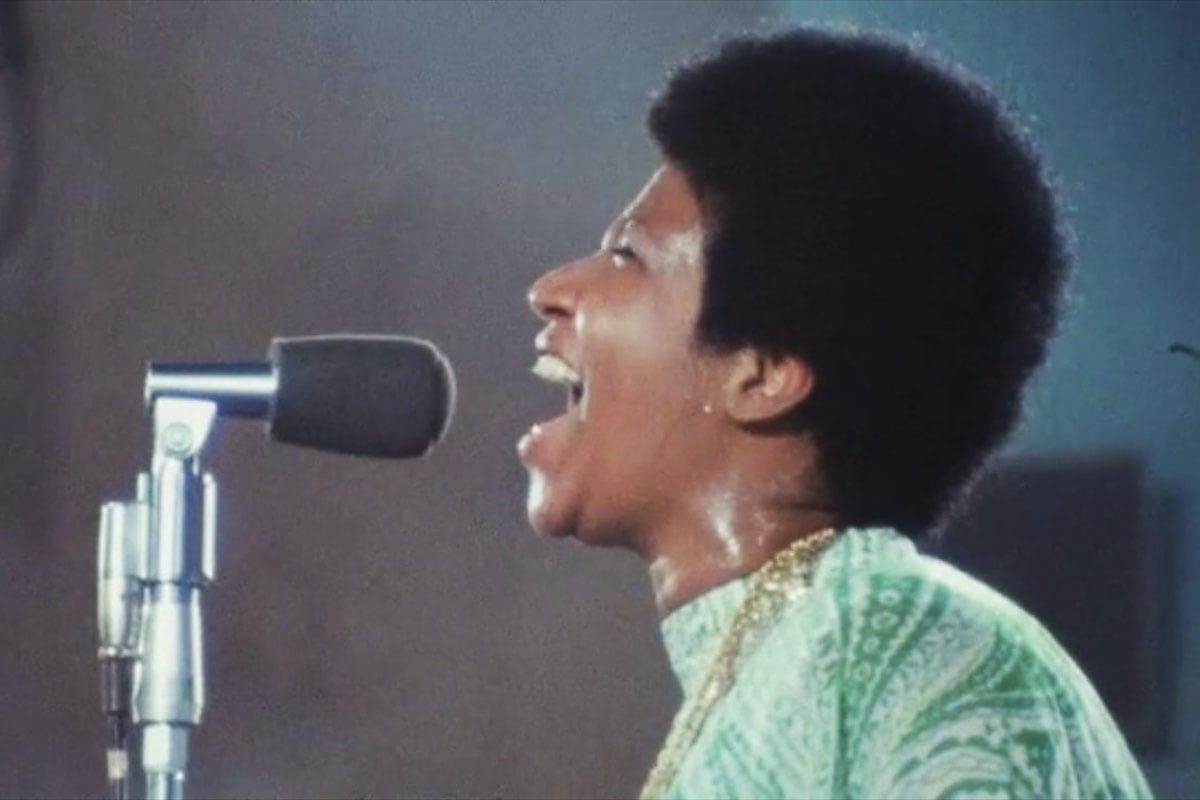They were not his usual repertoire, but he sang like never before.
In January 1972, Aretha Franklin was 29 years old and a star when she decided to go back to the beginning: to the gospel music that she was taught in her home in Detroit by her parents, the Baptist pastor and civil rights activist CL Franklin, and the singer and pianist Barbara Siggers Franklin.
She returns home even though she had traumas from her childhood: her mother left home when Aretha was six years old and died when she was 10;
Her father had gotten a teenager pregnant and she herself became a mother before turning 13 and for the second time at 14. That had not stopped her meteoric career that began with the spiritual songs of the African-American community and then turned her into the queen of the soul.
When his moment of greatest glory seemed to be behind him (the album of his consecration,
I Never Loved A Man The Way I Love You,
is from 1967) Frankin and his team prepared everything for two memorable sessions at the New Temple Missionary Baptist Church, in the Watts neighborhood, in south Los Angeles, a venue for about 150 people.
Aretha provides her prodigious voice and sits at the piano, accompanied by the Reverend (and another gospel figure) James Cleveland, as well as the solid band that accompanied her in her live performances and a great choir: Southern California Community Choir.
It would be recorded for an album and for a film directed by Sydney Pollack.
The album was released in June of that year and was the best-selling of her career in the United States (it is disputed whether it was surpassed in global sales by
Who's Zoomin' Who?,
from 1985).
But the film, due to recording problems and the artist's resistance to its publication, did not see the light of day until almost half a century later, 2018, when both the singer and the director had already died.
Producer Alan Elliott had managed to synchronize image and sound, which Pollack (unused to filming music) could not;
Franklin's heirs gave the go-ahead after several years in which she had blocked its release for reasons that were never explained, supposedly economic.
The result is called
Amazing Grace
,
it occupies a prominent place in music history and is available on Filmin and Movistar+.
It is an austere recording in an austere place, but in which every sound is enjoyed and a magical atmosphere is perceived that at times approaches ecstasy.
It was January and because of the coats it must have been cold outside, but inside the temperature kept rising.
Aretha Franklin breaks a sweat (literally), gives herself and makes the most of the voice that
Rolling Stone
chose as the best in the history of popular music.
The montage reflects well the simplicity of that concert: it does not cut, for example, the moment when she orders a song to stop to start again
(Climbing Higher Mountains)
.
Two sessions were filmed in the Baptist church: the audience included a majority of parishioners but also fans of the artist, including Mick Jagger and Charlie Watts, of the Stones.
In the second take, Aretha's father intervened to make a short speech that equally praised his talent and her faith.
Mr. Franklin arrived with his girlfriend, another gospel star named Clara Ward (who had influenced Aretha and whose song she sings:
How I Got Over).
There are close-ups in which the singer looks serious, very concentrated.
She barely opens her mouth except to sing and give goosebumps to an audience that enthusiastically participates with clapping, choruses and dancing.
There are very spontaneous displays of emotion: one of the women in the chorus bursts into tears;
The director of the same infects everyone with the enthusiasm of her gestures.
Aretha Frankin's tremendous vocal command and charisma do not hide the fact that we are in a religious service for true believers, as the reverend reminds us at the beginning.
The lyrics of the selected songs (some traditional, others by Carole King or Marvin Gaye) speak of that Christianity that provides a sense of community and gives hope to humble people: the strength of this religion, which explains its resistance, is in parishes neighborhood like this.
Scholar Karen Armstrong says that religion is a form of art: “Like the best art, religion gives the possibility of escaping the horror that surrounds us and seeking meaning for our lives.”
And music is the most spiritual of the arts: it is difficult to rationalize and is felt instinctively, although it can be put on scores and measured with mathematics.
If you believe in God, thank Him for creating Aretha Franklin.
If not, at least remember that there was something divine in that temple.
You can follow EL PAÍS Television on
X
or sign up here to receive
our weekly newsletter
.
Subscribe to continue reading
Read without limits
Keep reading
I am already a subscriber
_

